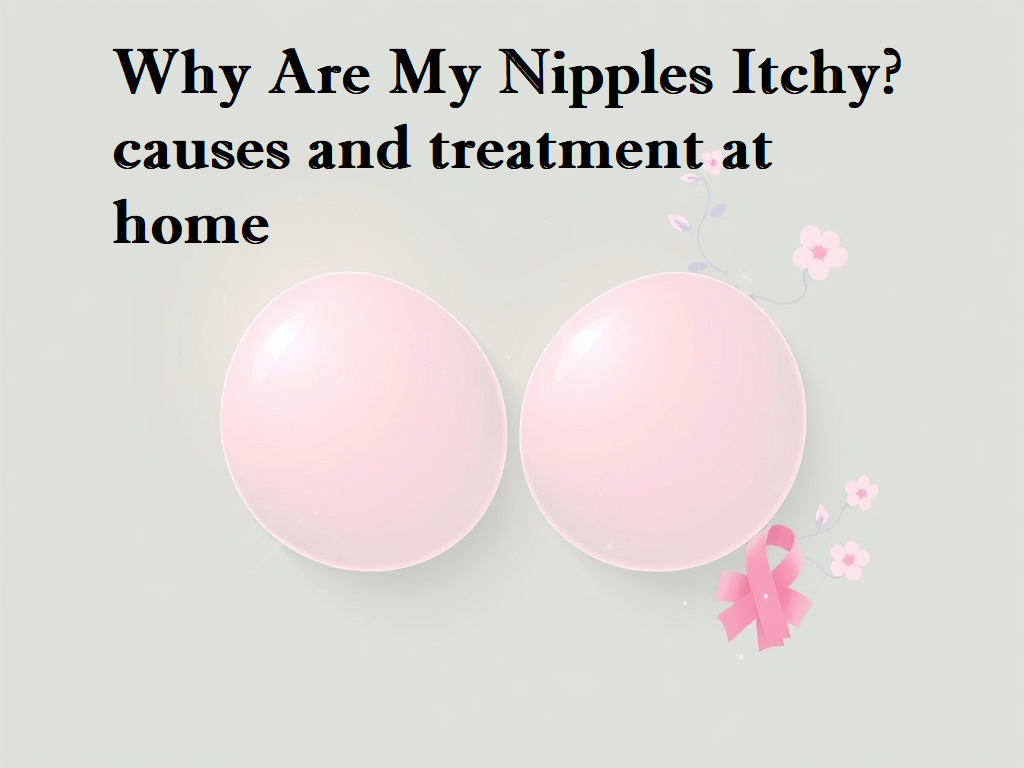Breast itchiness without visible rash can be concerning and uncomfortable for many women and men. This common condition affects millions of people worldwide, yet it’s often overlooked or dismissed as a minor inconvenience. Understanding the underlying causes of itchy breasts is crucial for proper treatment and peace of mind.
Pruritus, the medical term for itching, can occur on breast tissue for various reasons ranging from simple dry skin to more serious conditions like inflammatory breast cancer. While most cases are benign and easily treatable, knowing when to seek medical attention is essential for maintaining optimal breast health.
This comprehensive guide explores the multiple factors that can cause breast itching without visible rash, effective treatments, and important warning signs that warrant professional evaluation.
What Causes Breast Itchiness Without a Rash?
Dry Skin
Dry skin represents the most common cause of breast itchiness without visible rash. The delicate skin on and around the breasts is particularly susceptible to moisture loss, especially during winter months or in low-humidity environments.
Several factors contribute to breast skin dryness:
- Hormonal changes during menstruation, pregnancy, or menopause
- Environmental conditions like air conditioning or heating systems
- Frequent hot showers or baths
- Use of harsh soaps or detergents
- Age-related decrease in natural oil production
- Certain medications that affect skin hydration
The skin barrier becomes compromised when moisture levels drop, leading to microscopic cracks that trigger nerve endings and cause persistent itching. This condition often worsens at night when skin naturally loses more moisture.
Breast Growth
Natural breast growth during puberty, pregnancy, or weight gain can cause significant skin irritation and itching. As breast tissue expands, the skin stretches rapidly, creating tension that activates itch receptors.
Hormonal changes during these periods also affect skin elasticity and oil production, contributing to discomfort. Many women experience intense itching during:
- Adolescent breast development
- Pregnancy, particularly during the second and third trimesters
- Breastfeeding periods
- Weight fluctuations
- Hormonal medication use
The stretching sensation often intensifies during growth spurts, making moisturizers and gentle skin care essential for comfort.
Heat Rash
Heat rash, medically known as miliaria, can develop on breast tissue without producing visible bumps or obvious rash patterns. This condition occurs when sweat ducts become blocked, trapping perspiration beneath the skin surface.
Factors that increase heat rash risk include:
- Tight-fitting bras or clothing
- Synthetic fabric undergarments
- Hot, humid weather conditions
- Excessive sweating during exercise
- Poor ventilation around breast area
- Obesity or larger breast size
The trapped sweat creates irritation and itching that can persist even after cooling down. Allergic reactions to fabric softeners or laundry detergents can exacerbate this condition.
Allergens
Various allergens can trigger breast itching without producing visible rash, particularly in individuals with sensitive skin. Common allergens include:
Fabric-related allergens:
- Synthetic materials like polyester or nylon
- Latex in bra elastic bands
- Nickel in underwire bras
- Chemical dyes in colored fabrics
Personal care products:
- Fragranced body lotions or perfumes
- Fabric softeners containing harsh chemicals
- Laundry detergents with strong formulations
- Deodorants or antiperspirants
Environmental allergens:
- Pollen during seasonal changes
- Dust mites in bedding
- Pet dander
- Chemical cleaning products
Contact dermatitis from these allergens can cause delayed reactions, making it difficult to identify the specific trigger without careful observation.
Breast Cancer
While rare, certain types of breast cancer can cause itching without visible rash. Inflammatory breast cancer (IBC) represents the most serious cause, accounting for 1-5% of all breast cancer cases.
Inflammatory breast cancer symptoms include:
- Persistent breast itching or burning sensation
- Tenderness or pain in breast tissue
- Rapid breast size changes
- Skin texture changes resembling orange peel
- Warmth in affected breast
- Swelling of nearby lymph nodes
Paget’s disease of the nipple, another rare cancer form, can cause:
- Intense nipple itching
- Flaky skin around the nipple area
- Nipple discharge or bleeding
- Changes in nipple appearance
Early detection significantly improves treatment outcomes, making professional evaluation crucial for persistent symptoms.
Dry Weather Impact on Breast Skin
Seasonal changes dramatically affect breast skin health, with winter months being particularly challenging. Low humidity levels combined with indoor heating systems create perfect conditions for skin dehydration.
Dry weather effects on breast tissue include:
- Accelerated moisture loss from skin surface
- Reduced natural oil production
- Increased skin sensitivity and irritation
- Higher susceptibility to allergic reactions
- Compromised skin barrier function
Geographic locations with consistently low humidity, such as desert climates, pose ongoing challenges for maintaining breast skin health. Air conditioning during summer months can create similar drying effects, requiring year-round attention to skin hydration.
Eczema and Breast Itching
Eczema, or atopic dermatitis, commonly affects breast areas, particularly under the breast fold and around nipples. This chronic inflammatory condition can cause intense itching without always producing visible rash.
Eczema characteristics on breast tissue:
- Intermittent flare-ups triggered by stress or allergens
- Intense itching that worsens with scratching
- Skin thickening from chronic irritation
- Increased sensitivity to fabrics and chemicals
- Family history of allergic conditions
Atopic dermatitis often coexists with asthma or hay fever, suggesting an overactive immune response. Stress management and avoiding known triggers help control symptoms effectively.
Role of Soap and Personal Care Products
Many commercial soaps and body washes contain harsh detergents that strip natural oils from breast skin. Sodium lauryl sulfate (SLS) and other foaming agents can cause significant skin irritation, particularly on sensitive breast tissue.
Problematic ingredients in personal care products:
| Ingredient | Effect on Breast Skin | Common Sources |
|---|---|---|
| Sulfates | Strips natural oils | Body washes, shampoos |
| Parabens | Hormonal disruption | Lotions, cosmetics |
| Fragrances | Allergic reactions | Most scented products |
| Alcohol | Excessive drying | Toners, sanitizers |
| Formaldehyde | Contact dermatitis | Preservatives |
Switching to fragrance-free products and gentle, pH-balanced cleansers often provides significant relief from breast itching.
Undergarments and Friction Issues
Poorly fitting bras represent a major cause of breast itching and skin irritation. The average woman wears the wrong bra size, creating unnecessary friction and pressure points that irritate delicate breast skin.
Common bra-related problems:
- Underwire bras that dig into skin
- Synthetic fabrics that don’t breathe
- Tight bands that restrict circulation
- Rough seams or lace details
- Inadequate support causing bouncing friction
Natural fiber bras made from cotton or bamboo allow better air circulation and reduce moisture buildup. Professional bra fitting ensures proper support without excessive pressure on breast tissue.
Sports bras worn for extended periods can cause particular problems due to compression and moisture retention during physical activity.
Friction from Daily Activities
Daily activities can create subtle friction that leads to breast itching without obvious irritation. This mechanical pruritus often goes unnoticed until symptoms become persistent.
Common friction sources:
- Crossed arms during sleep
- Repetitive arm movements during work
- Exercise without proper support
- Carrying heavy bags against chest
- Tight clothing or seat belts
Home remedies for friction-related itching include using powder to reduce moisture, wearing smooth-seamed undergarments, and adjusting daily habits that create unnecessary breast contact.
Pregnancy-Related Breast Changes
Pregnancy brings dramatic hormonal changes that significantly impact breast tissue and skin health. Rising estrogen and progesterone levels cause rapid breast growth and increased blood flow, often resulting in intense itching.
Pregnancy breast changes:
- Breast growth from hormonal stimulation
- Increased sensitivity to touch and fabrics
- Stretch marks from rapid tissue expansion
- Changes in nipple and areola size
- Increased oil production affecting skin texture
Am I pregnant if my nipples are itchy? Itchy nipples can be an early pregnancy sign, but they’re not definitive. Many conditions cause nipple itching, so pregnancy tests provide more reliable confirmation.
Itchy nipples period or pregnancy – distinguishing between these causes requires considering timing, accompanying symptoms, and menstrual history. Pregnancy-related itching typically persists and intensifies, while menstrual-related itching often resolves after the cycle ends.
Breastfeeding Challenges
Breastfeeding creates unique conditions that can cause breast and nipple itching. The combination of frequent moisture exposure, hormonal fluctuations, and physical stress on nipple tissue creates multiple opportunities for irritation.
Breastfeeding-related itching causes:
- Frequent milk letdown triggering nerve responses
- Improper latch creating friction and damage
- Yeast infections (thrush) affecting nipples
- Engorgement causing skin stretching
- Allergic reactions to nursing pads or creams
Itchy nipples home remedy options for nursing mothers include:
- Cold compress application between feedings
- Gentle moisturizers safe for infant contact
- Proper latch positioning techniques
- Air-drying nipples when possible
- Sunscreen protection if exposure occurs
Thrush and Yeast Infections
Yeast infections on breast tissue, particularly nipple thrush in breastfeeding women, cause intense itching without always producing visible rash. Candida albicans thrives in warm, moist environments, making breast areas susceptible.
Thrush symptoms:
- Burning or shooting pain during and after feeding
- Persistent nipple itching
- Pink or red nipple coloration
- Shiny or flaky skin on nipples
- Deep breast pain during feeding
Antifungal treatments prescribed by healthcare providers effectively resolve thrush infections. Home remedies like diluted vinegar rinses or probiotic supplements may provide additional support.
Menopause and Hormonal Changes
Menopause brings significant hormonal changes that affect breast tissue and skin health. Declining estrogen levels reduce skin elasticity, oil production, and moisture retention, creating conditions that promote itching.
Menopausal breast changes:
- Decreased breast tissue density
- Reduced skin elasticity and thickness
- Altered oil gland function
- Increased sensitivity to environmental factors
- Changes in breast shape and size
Hormone replacement therapy (HRT) may alleviate some symptoms, but it requires careful medical supervision due to potential risks. Topical treatments with estrogen-based creams can provide localized relief.
Radiation Treatment Effects
Cancer patients receiving radiation therapy to breast or chest areas commonly experience skin changes and itching. Radiation damages healthy skin cells along with cancer cells, creating inflammatory responses.
Radiation-induced skin changes:
- Progressive skin drying and tenderness
- Increased sensitivity to touch and temperature
- Pruritus that may persist after treatment completion
- Skin darkening or pigmentation changes
- Delayed healing of minor skin injuries
Specialized moisturizers designed for radiation patients help maintain skin integrity. Medical attention should be sought for severe reactions or signs of infection.
Paget’s Disease of the Breast
Paget’s disease represents a rare form of breast cancer affecting nipple and areola tissue. This condition often begins with persistent nipple itching that doesn’t respond to standard treatments.
Paget’s disease symptoms:
- One itchy nipple that doesn’t improve
- Flaky skin or scaling around nipple
- Nipple discharge that may be bloody
- Changes in nipple shape or inversion
- Persistent tenderness or burning sensation
Does itchy breast mean cancer? While most breast itching has benign causes, persistent one itchy nipple for months warrants medical evaluation to rule out Paget’s disease or other serious conditions.
When to See a Doctor
Knowing when breast itching requires professional evaluation is crucial for maintaining health and peace of mind. Certain warning signs indicate the need for prompt medical attention.
Seek immediate medical care for:
- One itchy nipple persisting beyond two weeks
- Breast discharge accompanying itching
- Swelling, warmth, or tenderness in breast tissue
- Changes in breast size, shape, or skin texture
- Symptoms that interfere with sleep or daily activities
- Fever accompanying breast symptoms
- One itchy nipple for months without improvement
Schedule routine evaluation for:
- Persistent itching despite home remedies
- Recurring episodes of breast itching
- Allergic reactions to unknown triggers
- Changes in skin sensitivity or appearance
- Stress-related symptom patterns
Medical history discussion should include medication use, recent product changes, family history of breast or skin conditions, and menstrual patterns.
Treatments and Prevention Strategies
Effective treatment of breast itching requires identifying and addressing underlying causes while providing symptom relief. Multiple approaches often work best for comprehensive management.
Topical Treatments
Topical treatments provide direct relief for itchy breast tissue:
Over-the-counter options:
- Hydrocortisone cream (0.5-1% strength)
- Pramoxine for numbing relief
- Calamine lotion for cooling effects
- Moisturizers with ceramides or hyaluronic acid
- Antihistamines in topical form
Prescription treatments:
- Stronger topical steroids for inflammatory conditions
- Antifungal medications for yeast-related itching
- Immunomodulating creams for eczema
- Hormone-containing preparations for menopausal symptoms
Application techniques matter significantly. Gentle patting motions prevent additional irritation, while aggressive rubbing can worsen symptoms.
Oral Medications
Antihistamines taken orally help control itching from allergic reactions or systemic conditions:
| Medication | Type | Typical Dosage | Best For |
|---|---|---|---|
| Diphenhydramine | First-generation | 25-50mg every 6 hours | Acute itching, sleep aid |
| Cetirizine | Second-generation | 10mg daily | Daily prevention |
| Loratadine | Second-generation | 10mg daily | Non-drowsy relief |
| Fexofenadine | Second-generation | 180mg daily | Long-lasting control |
Second-generation antihistamines cause less drowsiness and are preferred for daytime use.
Home Remedies
Home remedies offer natural relief options for breast itching:
Cooling treatments:
- Cold compress application for 10-15 minutes
- Cool oatmeal baths for overall skin soothing
- Aloe vera gel for anti-inflammatory effects
- Cucumber slices for natural cooling
Moisturizing approaches:
- Coconut oil for natural antimicrobial properties
- Shea butter for intensive hydration
- Petroleum jelly for barrier protection
- Honey masks for healing and moisture
Lifestyle modifications:
- Loose-fitting cotton clothing
- Gentle, fragrance-free products
- Cool shower temperatures
- Stress reduction techniques
Prevention Strategies
Preventing breast itching involves addressing common triggers and maintaining optimal skin health:
Daily habits:
- Use lukewarm water for bathing
- Pat skin dry rather than rubbing
- Apply moisturizers while skin is still damp
- Choose breathable, natural fiber clothing
- Maintain consistent skincare routines
Environmental controls:
- Use humidifiers during dry seasons
- Avoid harsh chemical cleaning products
- Choose hypoallergenic laundry detergents
- Maintain comfortable room temperatures
- Ensure adequate ventilation in sleeping areas
Dietary considerations:
- Stay hydrated with adequate water intake
- Include omega-3 fatty acids for skin health
- Limit inflammatory foods like processed sugars
- Consider probiotic supplements for immune balance
Frequently Asked Questions
What would an itchy breast indicate?
Itchy breasts most commonly indicate dry skin, allergic reactions, or hormonal changes. However, persistent symptoms may suggest eczema, yeast infections, or rarely, breast cancer. The pattern, duration, and accompanying symptoms help determine the likely cause.
Why do my breasts itch when I wear a bra?
Bra-related breast itching typically results from:
- Poor fit causing friction or pressure
- Allergic reactions to fabric, elastic, or metal components
- Trapped moisture and reduced air circulation
- Synthetic materials that don’t breathe properly
- Inadequate washing leading to detergent residue buildup
Can stress cause itchy breasts?
Stress can indeed cause breast itching through multiple mechanisms:
- Hormonal changes affecting skin sensitivity
- Compromised immune function increasing allergic reactions
- Poor sleep quality affecting skin healing
- Increased scratching behaviors during anxious periods
- Eczema flare-ups triggered by emotional stress
Stress management through relaxation techniques, exercise, and adequate sleep often reduces itching symptoms significantly.
Does itchy breast mean cancer?
Does itchy breast mean cancer? Most breast itching has benign causes like dry skin or allergic reactions. However, certain types of breast cancer, particularly inflammatory breast cancer and Paget’s disease, can cause persistent itching. Warning signs include one itchy nipple lasting weeks, breast swelling, discharge, or skin texture changes.
Why is one nipple so itchy?
One itchy nipple can result from:
- Asymmetric exposure to allergens or irritants
- Unilateral hormonal sensitivity
- Paget’s disease (rare but serious)
- Local yeast infections
- Trauma or friction from clothing
One itchy nipple for months requires medical evaluation to rule out serious conditions.
Can itchy nipples be hormonal?
Can itchy nipples be hormonal? Yes, hormonal fluctuations significantly impact nipple sensitivity:
- Menstrual cycle changes affecting estrogen levels
- Pregnancy hormones causing breast tissue growth
- Menopause reducing estrogen and skin moisture
- Thyroid disorders affecting hormone balance
- Medications influencing hormonal systems
Does itchy breast mean period?
Itchy nipples sign of period can occur due to hormonal changes before menstruation. Rising progesterone levels may increase skin sensitivity and reduce moisture, causing temporary itching that resolves after the cycle completes.
Itchy nipple men
Itchy nipple men experience similar causes to women:
- Dry skin from environmental factors
- Contact dermatitis from clothing or products
- Eczema or psoriasis affecting chest area
- Rare cases of male breast cancer
- Exercise-related friction and sweat irritation
Men should seek evaluation for persistent one itchy nipple symptoms, especially with accompanying changes.
How to stop itchy nipples
How to stop itchy nipples depends on the underlying cause:
Immediate relief:
- Apply cool compress
- Use gentle moisturizers
- Take antihistamines for allergic reactions
- Avoid scratching to prevent worsening
Long-term solutions:
- Identify and eliminate triggers
- Maintain consistent skincare routine
- Choose appropriate undergarments
- Address underlying conditions like eczema
Summary
Breast itchiness without visible rash affects many individuals and can result from numerous causes ranging from simple dry skin to serious conditions like inflammatory breast cancer. Understanding the various triggers helps guide appropriate treatment and prevention strategies.
Most cases respond well to basic measures like proper moisturizers, fragrance-free products, and lifestyle modifications. However, persistent symptoms, particularly one itchy nipple for months, warrant professional medical evaluation to rule out serious conditions.
Hormonal changes during menstruation, pregnancy, and menopause commonly cause breast itching, while allergic reactions to fabrics, personal care products, or environmental factors represent another frequent cause. Stress can exacerbate symptoms through various mechanisms affecting skin health and immune function.
Effective management combines identifying specific triggers, using appropriate topical treatments like hydrocortisone or antihistamines, and implementing prevention strategies. Home remedies provide natural relief options, while prescription medications may be necessary for severe or persistent cases.
Does itchy breast mean cancer? While most breast itching has benign causes, awareness of warning signs ensures early detection of serious conditions. Paget’s disease and inflammatory breast cancer can cause persistent itching, making medical evaluation crucial for concerning symptoms.
Remember that can itchy nipples be hormonal – yes, hormonal fluctuations significantly impact breast tissue sensitivity. Whether questioning am I pregnant if my nipples are itchy or wondering does itchy breast mean period, understanding hormonal influences helps distinguish normal variations from concerning symptoms.
Proper diagnosis and treatment require considering individual circumstances, symptom patterns, and response to initial interventions. When in doubt, seeking medical attention ensures appropriate care and peace of mind for optimal breast health maintenance.

Catherine Frank, founder of BiblicalHorizon.com, shares daily prayers and Bible verses to nurture spiritual growth. With a lifelong passion for scripture and prayer traditions, she creates accessible spiritual content that resonates with both seasoned believers and newcomers seeking divine connection.



